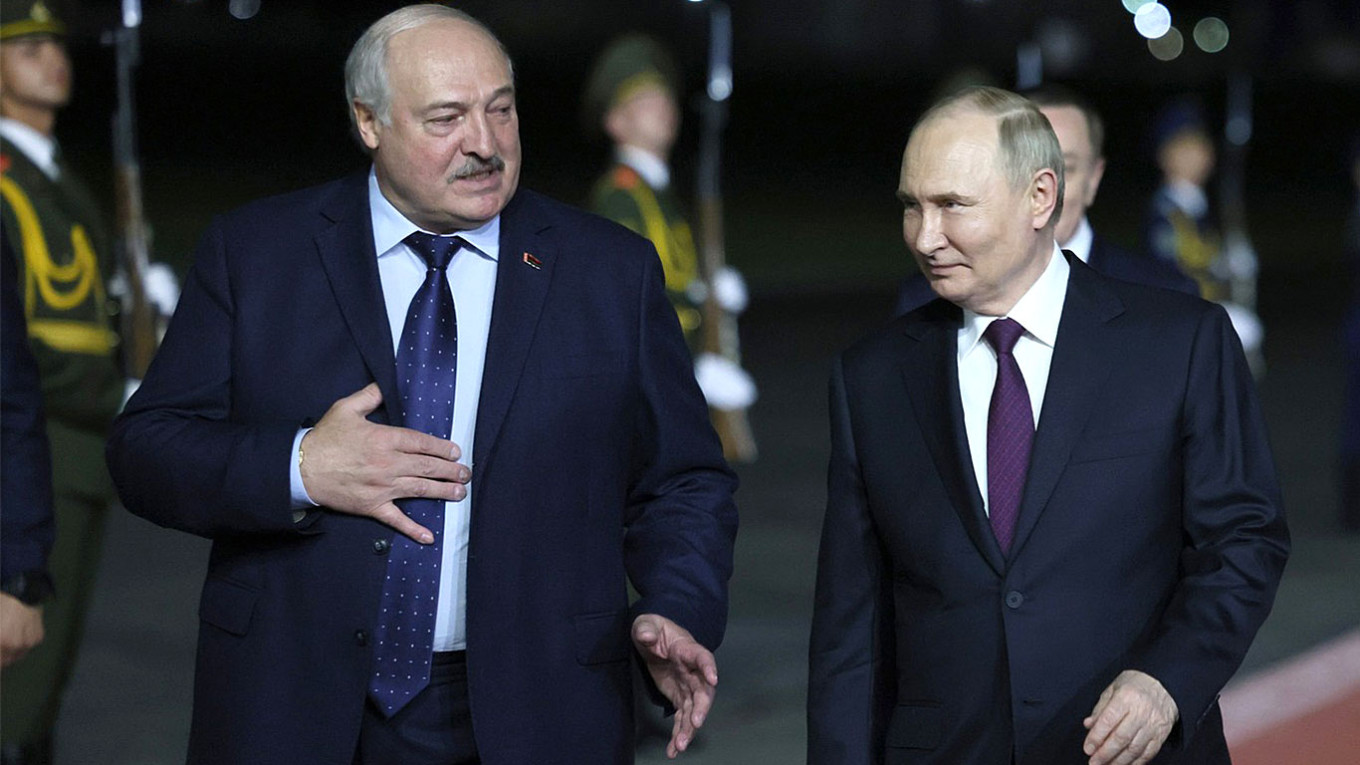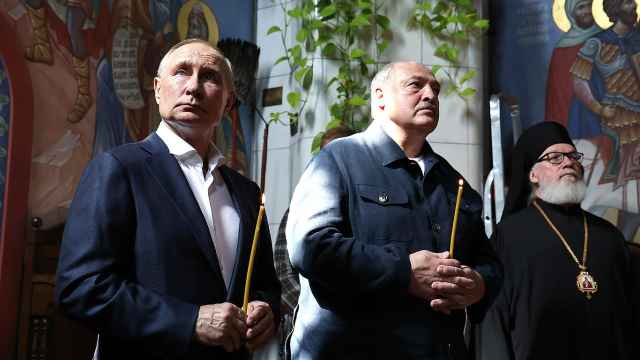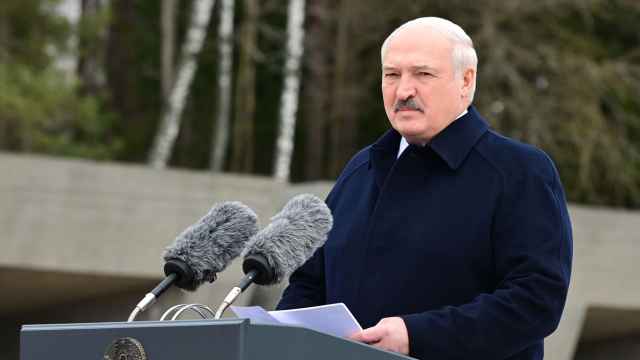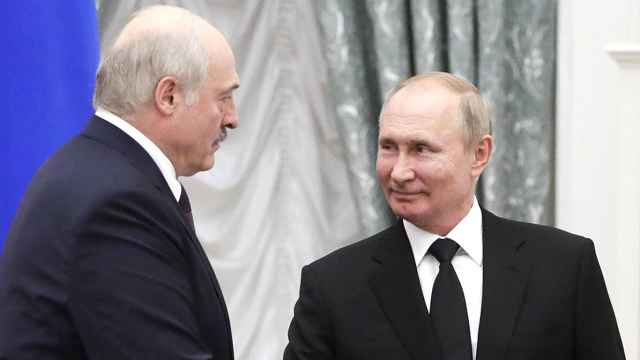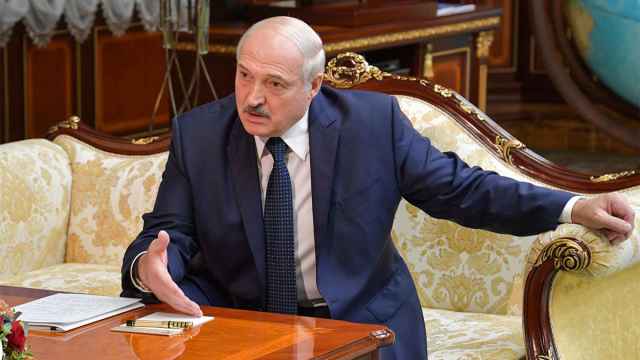Russian President Vladimir Putin arrived in Belarus late Thursday for talks with his Belarusian counterpart Alexander Lukashenko expected to focus on security and joint tactical nuclear weapons exercises.
Earlier this month, Putin ordered the Russian military to conduct tactical nuclear weapons exercises in response to Western “threats and provocations.”
Belarus, which last year agreed to host Russian tactical warheads on its territory amid rising tensions over Ukraine, announced snap inspections of the non-strategic nuclear weapon carriers following the Russian president’s order.
This week, Russia’s Defense Ministry announced the first phase of the drills in its Southern Military District, which includes parts of Ukraine that Russia claims to have annexed.
“The second phase of the exercises has to do with the direct participation of our military allies and colleagues from Belarus,” Putin told Lukashenko after arriving in Minsk late Thursday.
Neither Russia nor Belarus have said where exactly the exercises will take place or if they will include any test firings.
The newly appointed Russian Defense Minister Andrei Belousov also traveled to Minsk as part of the talks, arriving early Friday to meet with his Belarusian counterpart Viktor Khrenin.
A Message from The Moscow Times:
Dear readers,
We are facing unprecedented challenges. Russia's Prosecutor General's Office has designated The Moscow Times as an "undesirable" organization, criminalizing our work and putting our staff at risk of prosecution. This follows our earlier unjust labeling as a "foreign agent."
These actions are direct attempts to silence independent journalism in Russia. The authorities claim our work "discredits the decisions of the Russian leadership." We see things differently: we strive to provide accurate, unbiased reporting on Russia.
We, the journalists of The Moscow Times, refuse to be silenced. But to continue our work, we need your help.
Your support, no matter how small, makes a world of difference. If you can, please support us monthly starting from just $2. It's quick to set up, and every contribution makes a significant impact.
By supporting The Moscow Times, you're defending open, independent journalism in the face of repression. Thank you for standing with us.
Remind me later.


